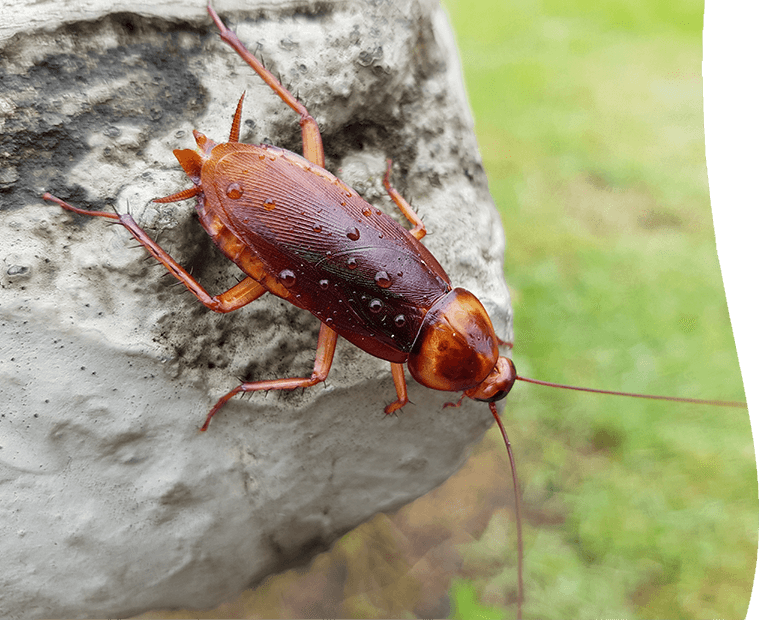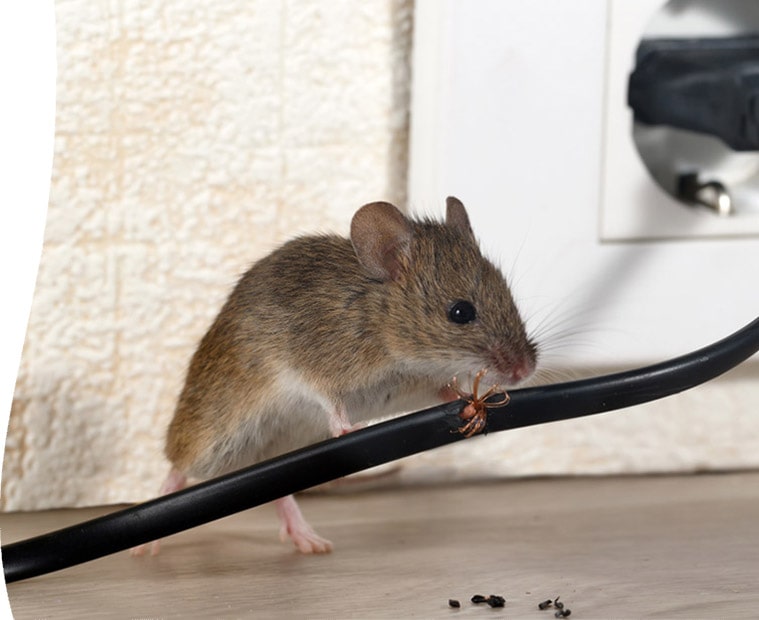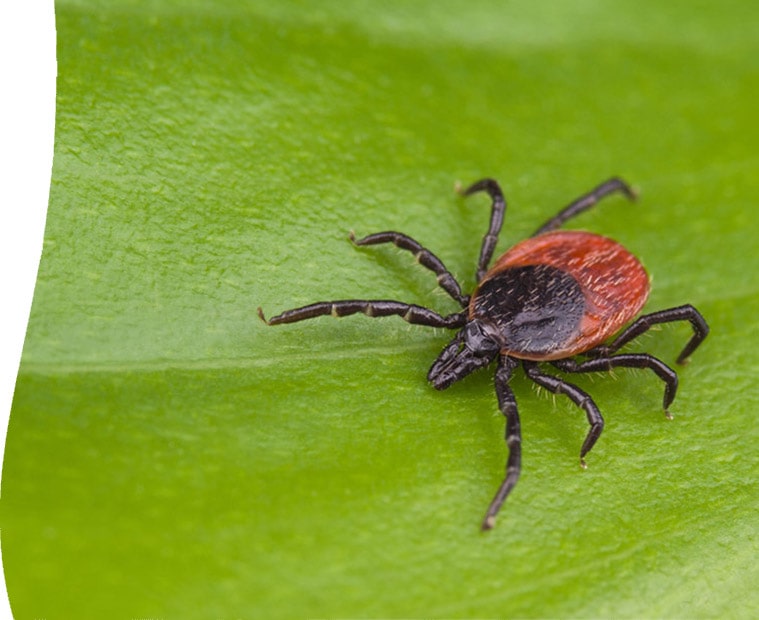
Cockroaches
Cockroaches are unsightly, annoying and even dangerous. While cockroaches don’t generally bite, they do spread bacteria around your house. This can, in turn, lead to you getting sick. Beyond this, they can get into your food and contaminate it.
If you don’t want cockroaches scurrying around your house spreading bacteria, consider these tips:
- Replace torn or damaged window and door screens.
- Seal off openings to the exterior wall of your property.
- Clean and vacuum your house regularly.
- Check packages and boxes before bringing them indoors.
- Take out your garbage regularly.
Mosquitoes
Whether they are buzzing around your head annoying you or silently biting you, mosquitoes are a pain to deal with. These insects live off of your blood, and leave itchy bumps when they are done feeding. Beyond causing you to itch, though, mosquitoes can actually lead to more serious problems. Mosquitoes are known to carry diseases and viruses that they spread when they bite. Because of this, you’ll want to make sure you take the right steps to avoid an infestation.
Here are a few tips you’ll want to consider to avoid mosquitoes on your property:
- Get rid of any standing water around your house.
- Fill in any holes on your property that can collect water.
- Turn buckets and other containers outdoors upside down.
- Keep your grass cut short.
- Remove stumps and debris from your property.


Ants
There are a variety of different types of ants that you may encounter. Some of these include fire, sugar and Argentine. Some of these ants (like fire ants) are aggressive, and their stings can hurt. Others are relatively benign, but they can still spread bacteria and cause structural damage to your home. Once you notice ants in your house, you’ll want to take the appropriate steps to remove them before they spread.
To avoid an ant infestation, consider the following tips:
- Put food away after you are done eating it.
- Rinse out containers and cans before you throw them away.
- Use weather-stripping on your doors and windows.
- Remove overgrown vegetation from your property.
- Cut tree branches on your property.
spiders
Spiders are creepy and their webs are extremely irritating. No one likes accidentally walking through a spider web! Along with spinning webs that tend to grow over time and become a nuisance, spiders can be dangerous. Some spiders have venom that can cause lasting harm, and may even land you in the hospital. Once you find that you have spiders living in your home, take action to remove them.
To avoid a spider infestation to begin with, do these things:
- Remove rock, wood and leaf piles from your property.
- Repair rips in your window and door screens.
- Seal off cracks in your exterior wall.
- Remove spider webs when you see them.
- Keep your doors and windows closed.


Bed Bugs
Bed bugs are awful. These parasites attack you in your sleep, biting you and causing you to itch. They don’t just stick to your bed, though. Bed bugs can also make their way around your house, living on furniture and biting you there as well.
To avoid a bed bug infestation, consider the following tips:
- Wash new clothing that you purchase from the store.
- Wash your clothes when you return home from a vacation.
- Avoid purchasing a used bed or used furniture.
- Regularly wash your sheets.
- Clean and vacuum your house often.
Rodents
Roof rats, mice and other rodents may decide that your home is a better place to live than the outdoors. From there, they will eat your food, cause damage to your home and even make you sick. Rodents are known to carry diseases and viruses, which makes them more dangerous than you may expect. Because of this, you’ll want to make sure rats and/or mice don’t move in and start reproducing in your home.
To avoid a rodent infestation, keep these tips in mind:
- Take out your garbage regularly.
- Keep your home cleaned and vacuumed.
- Use your garbage disposal.
- Keep your doors and windows closed.
- Put away food after you’re done eating.


Wasps/Hornets
If you’ve ever been stung by a wasp or hornet, you know how much these stings can hurt. If you are unfortunate enough to be allergic to wasps and hornets, you also know just how dangerous an allergic reaction can get…
Once you discover a wasp nest on your property, get rid of it. Even if you aren’t allergic, a family member or someone visiting your house may be. The last thing you want is for them to end up in the hospital.
Instead of putting yourself at risk trying to address the nest, consider contacting a pest control specialist. They can come out to your property and safely remove the nest, then make sure the wasps or hornets don’t come back.
Ticks
Ticks are parasites that attach to a host and feed off of them. These parasites may decide to attach to one of your pets, or they may decide you are a better meal. Whatever the case may be, you want to avoid ticks at all costs. Ticks sometimes carry diseases that are very serious. Because of this, take precautions to keep your pets, your family and yourself safe from ticks.
Here are some things that you can do to avoid ticks:
- Keep the grass in your yard short.
- Check pets that spend time outside for ticks whenever they come back indoors.
- Clean up around your house and vacuum your floors.
- Keep your bushes and shrubs short and tidy.
- Put your pets on a year-round tick control program.


Termites AND CARPENTER ANTS
Termites and carpenter ants are quite different, but they have one thing in common—they do a lot of damage to your home. Termites can number in the thousands if an infestation spreads, and carpenter ants cause billions of dollars-worth of property damage every year! If you suspect you have either of these pests in your home, contact an exterminator immediately. If you don’t, you risk thousands of dollars-worth of damage being done to your home.
In order to avoid carpenter ants in the first place, consider these tips:
- Remove tree stumps and other debris from your yard.
- Paint, varnish and stain the wood in your home.
- Use weather-stripping on your doors and windows.
- Ensure your basement stays dry.
- Close gaps in the roofline of your home.
















